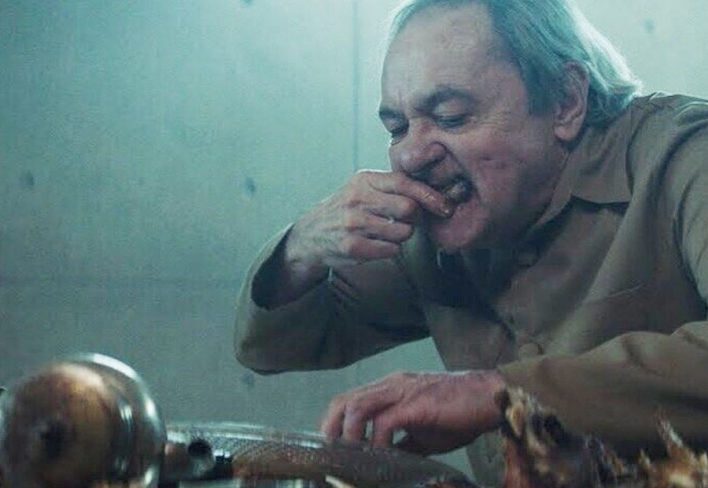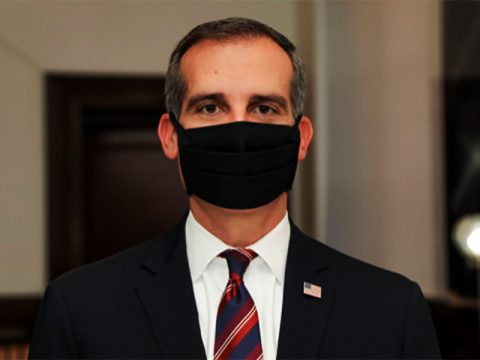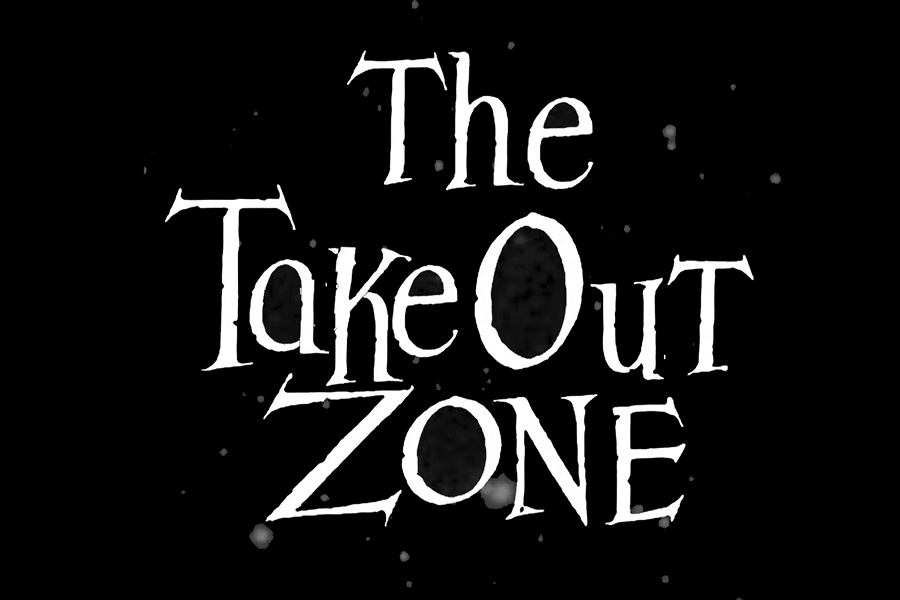
There are several elements that might go into a modern-day allegory in 2020, a sobering parable for post-COVID filmgoers: claustrophobia, paranoia, distrust in the ruling class. Applied with a bright and colorful palette of pastels, this recipe might result in 2010’s bizarrely prophetic Tangled, but on the other end of that spectrum, drenched in drab greys and ominous reds is Galder Gaztelu-Urrutia’s The Platform, one of Netflix’s most recently featured thrillers.

Originally known as El Hoyo(or The Hole) in its native Spain, The Platformfollows Goreng, a man who agrees to a six-month stay in a “vertical self-management center,” a dystopian social experiment where levels stretch endlessly in both directions, in exchange for a diploma. However, unbeknownst to Goreng is the meal system in this barren hellscape: one single platform loaded with the height of fine dining at the top, which stops at each level for dinner to be served as it descends. Those who attempt to hoard food past their allotted interval will be punished with fatally low or high temperatures unless they drop it back into the hole. The consequences, as Goreng’s elderly roommate is so fond of saying, are obvio: those at the top feast, while those below are left with scraps, if anything, with some having to resort to unthinkable acts just to live to see another day.
Iván Massagué’s portrayal of Goreng is enough to carry the weight of the film, bearing the bright eyes and naïveté of someone who chooses a copy of Don Quixote as their one “desert island” item to accompany them into this literal hellhole, to say nothing of the dawning horror he experiences with each day spent there. The constantly impressive ensemble cast shifts around Massagué, as cellmates are rotated bi-monthly, however, it’s Zorion Eguileor’s performance as Goreng’s original living companion, Trimagasi, that steals each and every scene in which he appears. While initially serving as a clever vehicle through which exposition is meted out to Goreng, insisting on providing information only when he has received as much, he goes on to become a perfectly formed foil, gruff and rasping when he isn’t stuffing his face with 47 levels’ worth of leftovers.
But the shuffling of cellmates and levels makes for welcome changes of scenery, even if the scenery remains literally unchanged. One of the most fascinating elements of The Platformis its aesthetic; while the stark nature of the concrete prison is cold and clinical, it’s occasionally washed in the light of its ever-present alarms (green for when the platform is approaching from above, red for when it’s flying up from below), a stylistic choice that colors the ebb and flow of the plot. Meanwhile, each new level feels exactly that, brand new, replete with new positions for the actors and new camera angles. Because Goreng often wakes up on new levels with new partners, this makes it easier for the audience to keep track of where they are in the story, and where Goreng is in his sentence.
Speaking of camera work, Jon D. Domínguez’s cinematography is superb, making a film with such horrifically ugly subject matter look no less than pristine. To attempt to put it delicately, all matters of bodily functions make their presence known in one way or another, so the fact that such a film can remain so gorgeously shot is a testament to Domínguez’s skills behind the lens.
Of course, all of this might be rendered moot if it were not for the powerful message underscoring the film, thanks to scribes David Desola and Pedro Rivero, who had initially intended the tale for the stage. Thinly veiled as it may be, The Platform is grotesque in its bare-faced confrontation of the perils of class warfare. Starving prisoners stomp all over the feast just to get a few scraps, often ignoring those who might implore them to ration out servings so that everyone might survive, while those less ravenous may be destined to become the feast themselves.
The Platform is admittedly disturbing, yet beautifully crafted and endlessly clever. And while the film is undoubtedly worth a watch, its exceedingly grim nature may call for a particular headspace in which to enjoy it; those feeling the effects of self-imposed lockdown may find that it hits a little too close to home, but for those who are prepared, there are few selections on Netflix more viscerally thrilling than The Platform.











